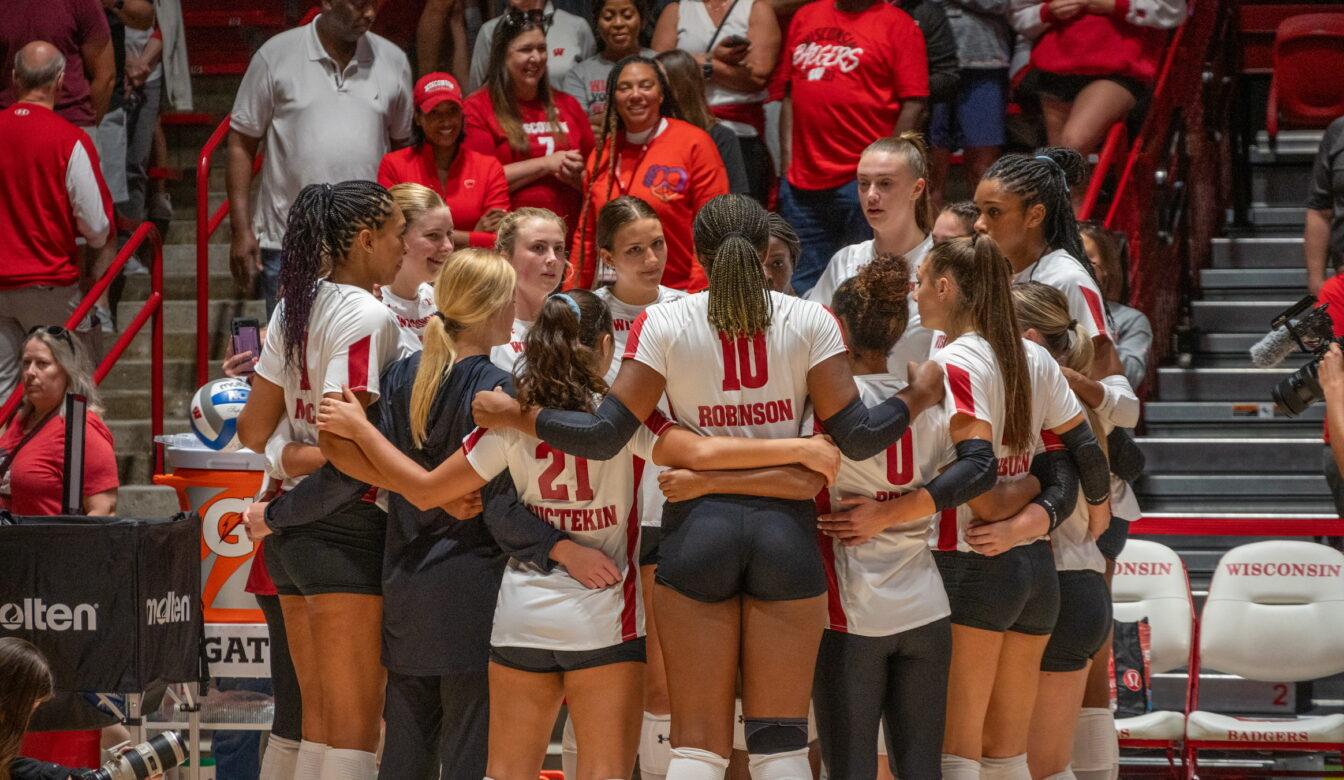Even as Name, Image and Likeness has rapidly grown throughout the NCAA and altered the way players attend school, the student athletes who make up those programs are still students. The University of Wisconsin institutes a support network for them through its holistic wellness program, FORWARD360.
FORWARD360 programming includes typical activities like strength and conditioning, performance nutrition and mental health and sports psychology to help athletes be their best. Athletes can train in UW’s four athletic facilities, eat nutritious food at one of the two Jack Link’s Protein Performance Centers and connect with a sports psychologist.
UW employs 11 full-time strength coaches across its 23 sports, with each of them holding impressive backgrounds. Jim Snider, for example, who trains the men’s basketball and tennis teams, trained NHL players and Olympians for 12 years prior to joining UW in April of 2021.
The stresses and strains of playing and training wouldn’t be possible without proper nutrition. UW created the College Athletics Meal Plan (CAMP) app to assist each athlete’s recovery and performance. Players work with meal plans, undergo nutrition education, and have nutrition and supplement assessments to ensure athletes are feeling their best.
Sometimes, players can train and eat as well as they can, but might still encounter rough patches. UW encourages its athletes to speak with one if its many sports psychologists to work through stress related to anxiety, depression, relationships, and identity as well as sport performance as another facet of FORWARD360.
UW also broke new ground when they hired Director of Meditation Training Chad McGehee in 2020, making him the first in major college sports with the position. McGehee’s meditation training offers athletes a unique space to boost mindfulness with modern science and contemplative practice.
There are seven other “programs” that complete the full FORWARD360 program: Academic Services, Badgers Give Back, Career & Leadership, Diversity & Inclusion, Sports Medicine, and the W Club.
Some of these programs help prepare athletes for after they’ve left campus.
It starts at practices and networking events, such as the Badgers Means Business events held Feb. 14 and 26. Amidst a busy and potentially stressful season or offseason, athletes of all sports are able to connect with professionals.
Badgers Means Business, as the Wisconsin Badgers official Facebook and X account said, “is a place for athletes to join room full of local business leaders, eager to meet the next generation of self-starters.”
The event Feb. 26 was held at the Camp Randall south end zone. UW’s Director of NIL Strategy Brian Mason described the event to prospective local business leaders as a place to connect with motivated student-athletes in a fun and relaxed setting.
Badgers Means Business works in tandem with the W Club, UW’s lettermen’s association established in 1949. Athletes who earn UW’s varsity athletic insignia “W” are permitted into the club. But, W Club members receive more than a letterman’s jacket.
Once admitted, student athletes join a deep network of professionals who were once in their places, with almost 10,000 current members located across all 50 states, according to previous reporting from The Badger Herald.
Even before joining the W Club or attending the Badgers Means Business events the university sponsors, athletes prepare for life post-graduation. UW women’s volleyball head coach Kelly Sheffield, who spoke at the Feb. 26 event, stresses the importance of personal growth to his players.
“Sheffield says to all his players, if I’ve only helped you get better at volleyball I’ve failed you as a coach,” UW women’s volleyball Assistant Coach Gary White, said about Sheffield at a press conference.
Under Sheffield’s staff, players are encouraged to become effective communicators. In addition to playing at the highest level they can athletically, White said the coaching staff hopes for their players to become someone people can rely on, who are fearless, have opinions but also have the facts behind the opinion they make. Though they continue to develop knowledge and ability in their sport, they also learn how to handle what’s in front of them.
Not every athlete at UW will play their sports professionally. For volleyball, new leagues in the U.S. like League One provide playing opportunities close-by, but many players have moved abroad to continue their playing careers. Much of what Sheffield and his staff stress relates to this substantial change in environment.
As White says, there’s less structure in most foreign volleyball leagues. UW has several coaches, a director of operations, set travel plans and much more. While an athlete at UW, players learn about what they need for recovery, nutrition and strong mental performance, in addition to a support network of people to lean on. But, everything is rests on the athlete’s shoulders at the next level.
Beyond the new independence, international players must manage the usual issues and feelings foreigners face. Though they often study a language in school, there’s no guarantee they’ll play in a place where they’ll speak the local language. This can make connecting with teammates difficult, but something that must happen.
Many college graduates might experience something similar. Thrust into a new city, new professionals need skills and mindsets suitable for their new lives. They must be good communicators and problem solvers and it doesn’t hurt to be a good person, too.
When athletes attend events like Badgers Means Business and take advantage of FORWARD360’s benefits, they’re building an even strong base for future success.


